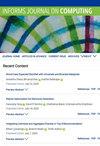非线性规划的精确矩阵分解更新
IF 2.3
4区 计算机科学
Q3 COMPUTER SCIENCE, INTERDISCIPLINARY APPLICATIONS
引用次数: 0
摘要
LU和Cholesky矩阵分解算法是求解优化问题时遇到的线性方程组(SLEs)的核心子程序。标准浮点算法非常高效,但仍然容易受到舍入误差积累的影响,这可能导致求解器返回实际上无效的可行性和最优性声明。本文介绍了一种新的直接求解非线性规划中遇到的密切相关SLEs序列的方法,该方法有效且无舍入误差。具体地说,它介绍了用于舍入无错误分解框架的排名一的更新算法,这是一个建立在整数保持算法上的工具集,它导致了用于解决线性规划中出现的SLEs的极其可靠的子例程的开发和实现。通过理论见解的推导,建立了所提出算法的形式保证。它们的优势得到了计算实验的支持,这些实验表明,在具有超过一百万个条目的全密集矩阵上,精确分解运行时间比精确分解运行时间提高了75倍以上。特征整保框架的一个显著优点是,由其算法产生的任何矩阵系数的长度在输入的大小上是多项式有界的,而不必诉诸于最大公约数运算,这是精确理性算术方法所需要的,从而阻碍了有效实现。历史:被连续算法设计与分析领域编辑Antonio Frangioni接受。补充材料:支持本研究结果的软件可在论文及其补充信息(https://pubsonline.informs.org/doi/suppl/10.1287/ijoc.2021.0331)以及IJOC GitHub软件存储库(https://github.com/INFORMSJoC/2021.0331)中获得。完整的IJOC软件和数据存储库可从https://informsjoc.github.io/获得。本文章由计算机程序翻译,如有差异,请以英文原文为准。
Exact Matrix Factorization Updates for Nonlinear Programming
LU and Cholesky matrix factorization algorithms are core subroutines used to solve systems of linear equations (SLEs) encountered when solving an optimization problem. Standard floating-point algorithms are highly efficient but remain susceptible to the accumulation of round-off errors, which can lead solvers to return feasibility and optimality claims that are actually invalid. This paper introduces a novel direct solution approach for solving sequences of closely related SLEs encountered in nonlinear programming efficiently and without round-off errors. Specifically, it introduces rank-one update algorithms for the round-off error–free factorization framework, a tool set built on integer-preserving arithmetic that has led to the development and implementation of extremely reliable subroutines for solving SLEs occurring in linear programming. The formal guarantees of the presented algorithms are established through the derivation of theoretical insights. Their advantages are supported with computational experiments, which demonstrate upward of 75× improvements over exact factorization runtimes on fully dense matrices with more than one million entries. A significant advantage of the featured integer-preserving framework is that the length of any matrix coefficient produced by its algorithms is bounded polynomially in the size of the inputs without having to resort to greatest common divisor operations, which are required by and thereby hinder an efficient implementation of exact rational arithmetic approaches. History: Accepted by Antonio Frangioni, Area Editor for Design & Analysis of Algorithms–Continuous. Supplemental Material: The software that supports the findings of this study is available within the paper and its Supplemental Information ( https://pubsonline.informs.org/doi/suppl/10.1287/ijoc.2021.0331 ) as well as from the IJOC GitHub software repository ( https://github.com/INFORMSJoC/2021.0331 ). The complete IJOC Software and Data Repository is available at https://informsjoc.github.io/ .
求助全文
通过发布文献求助,成功后即可免费获取论文全文。
去求助
来源期刊

Informs Journal on Computing
工程技术-计算机:跨学科应用
CiteScore
4.20
自引率
14.30%
发文量
162
审稿时长
7.5 months
期刊介绍:
The INFORMS Journal on Computing (JOC) is a quarterly that publishes papers in the intersection of operations research (OR) and computer science (CS). Most papers contain original research, but we also welcome special papers in a variety of forms, including Feature Articles on timely topics, Expository Reviews making a comprehensive survey and evaluation of a subject area, and State-of-the-Art Reviews that collect and integrate recent streams of research.
 求助内容:
求助内容: 应助结果提醒方式:
应助结果提醒方式:


